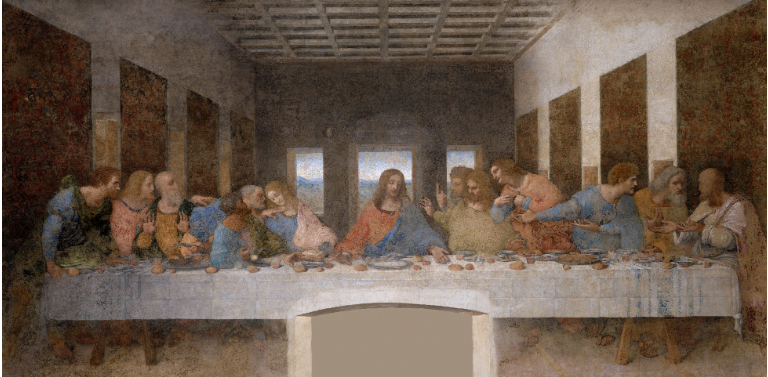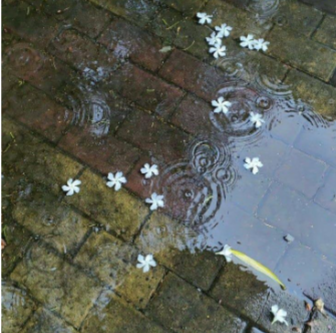An Ode To All Things Bright & Dead by Alexandra Rae
- Breanna Crossman
- Dec 3, 2023
- 5 min read
As a prose writer, I have always struggled to appreciate the abstract nature within poetry (what do you mean there isn’t supposed to be an answer to all of life’s questions by the last stanza? My prosaic brain couldn’t comprehend this madness). I longed to love the lyricism and mystery tucked into sonnets sung by talented poets across the world – and in a way I did. I was attracted to the musicality of poems, but always wanted to make “sense” of them; to strip away their similes and metaphors to the barebone language for English-major-level analysis. Writing my own poems only brought me headaches and a dash of self-doubt, as I couldn’t write a poem without writing a narrative. Turns out, trying to write a comprehensive story in fourteen lines made for a magicless poem.

Ada Limón by pw.org
It wasn’t until I began my first poetry workshop this semester that I started to understand that poems weren’t meant to be, well, understood. “Good” poems were meant to resonate with you; to give you the gift of moments instead of story. Poetry, when well-executed, carries the power of transcendence beyond the page. You can grow with the poem over time and read it a million different ways as you change – and while I firmly believe prose contains this same power, poetry certainly accomplishes this in fewer words. I discovered just how true this was while reading a poetry collection that talked about horses, death, femininity, and transformation with an intimacy that paralleled two old friends (the speaker and I) catching up over coffee – but in a voice that still demanded to be listened to. I am of course referring to Bright Dead Things by the 24th Poet Laureate of the United States, Ada Limón. Split into four sections, with layered themes woven throughout, there is a poem for everyone in this collection. Let’s delve into the magic of her words together.
For those looking for female empowerment, you don’t have to look beyond the first poem in Bright Dead Things. “How To Triumph Like A Girl'' centers on the magnificence of female horses and how “they make it all look easy” (Limón l. 2) – the running, Limón means, but also the very act of being a woman in this world. Even as an animal, it is hard. My favorite part of this poem takes place in lines 14-18, when Limón draws the connection between horse and speaker:
Don’t you want to believe it?
Don’t you want to lift my shirt and see
the huge beating genius machine
that thinks, no, it knows,
it’s going to come in first.
The feminine voice is prevalent throughout other poems in this collection, such as “Service.” Just as she did in “How To Triumph Like A Girl”, Limón draws a connection between animal and speaker in order to convey their own sense of identity. Whether this pertains to the identity of the speaker or the writer is not said, but what is unwritten off the page comes through in sharp imagery. An example comes from lines 26-30 in “Service” as the speaker greets a girl pit bull in the back of a car body shop:
… Girl, no one’s going to tell me
when to take a leak, when to bow down,
when not to bite. So, right then, in the dim lights
of the strange garage, I lifted my skirt and pissed
like the hard bitch I was.
Who knew pit bull piss could be so empowering?
Grief is another element of life Limón tackles in Bright Dead Things. In the poem “What Remains Grows Ravenous”, the speaker recounts the timeline of a loved one dying in her home in six sections. The speaker situates herself as an active participant in the care of this person (and later, therefore, an active participant in the grieving process) through statements like “The only thing I’ve learned about a home death/is that it requires a lot of washcloths” (ll. 7-8). More insights on death and how it changes those that are still living are brought up in the third section within lines 25-28:
When my dad became a widower, women brought meals,
and wine, and pies.
The word widower looks like window.
Something you can see yourself in, in the dark.
There is a certain amount of comfort people may feel from reading these words. Death is something humans are expected to prepare for as we all will have to face it at the end of our lives – but no amount of preparation can take away how alienating it feels. How losing someone often feels like losing a part of ourselves. Limón touches on this phenomena in other poems like “In A Mexican Restaurant I Recall How Much You Upset Me” :
And then you were what? What then?
Oh body where do we keep it?
Oh how I don’t offer enough (ll. 12-14).
I had to keep a pack of tissues nearby while reading some of Limón’s poems (particularly in section two of this collection), so I highly recommend her work for anyone in need of a well echoing their confusion and fear in grief. Or for anyone in the mood to cry while reading.
I could find a thousand more of Limón’s stanzas to showcase here to convince you to read her work, but instead I’ll provide a succinct list of themes found within Bright Dead Things for everyone to find their niche.
Nature: a theme woven in most of this collection, but my favorite poems surrounding natural imagery include “How Far Away We Are”; “The Tree Of Fire”; “Oranges & The Ocean.”
Hope: for us, for the world…for poetry itself. “Midnight, Talking About Our Exes”; “The Great Blue Heron Of Dunbar Road”; “The Conditional.”
Love: “Glow”; “Accident Report In The Tall, Tall Weeds.”
A Dose Of God: “Torn.”
Limón writes in “I Remember The Carrots” that she “loved them: my own bright dead things” (l. 11). This collection of poignant poetry has inspired me to look for my own bright dead things and immortalize them through the craft of writing. The stuffed animals I no longer sleep with. The friendship bracelets sitting at the bottom of my vanity. A phone number from a stranger half-ruined by rain. So many unread books. So many poems, yet to be discovered.
Alexandra Rae (she/her) is a 20-year-old aspiring writer from the U.S. studying Creative Writing and Public Relations & Advertising at Point Park University. She loves exploring all genres, but her favorites are Creative Non-Fiction and Poetry. She is also a content writer for The Young Writer's Initiative (@TYWI on Instagram) and runs her own writing account as well
(@theresonationofalexandra). Her biggest writing inspirations are Taylor Swift, Lauren Slater, Stephen King, and Joy Harjo.



Comments